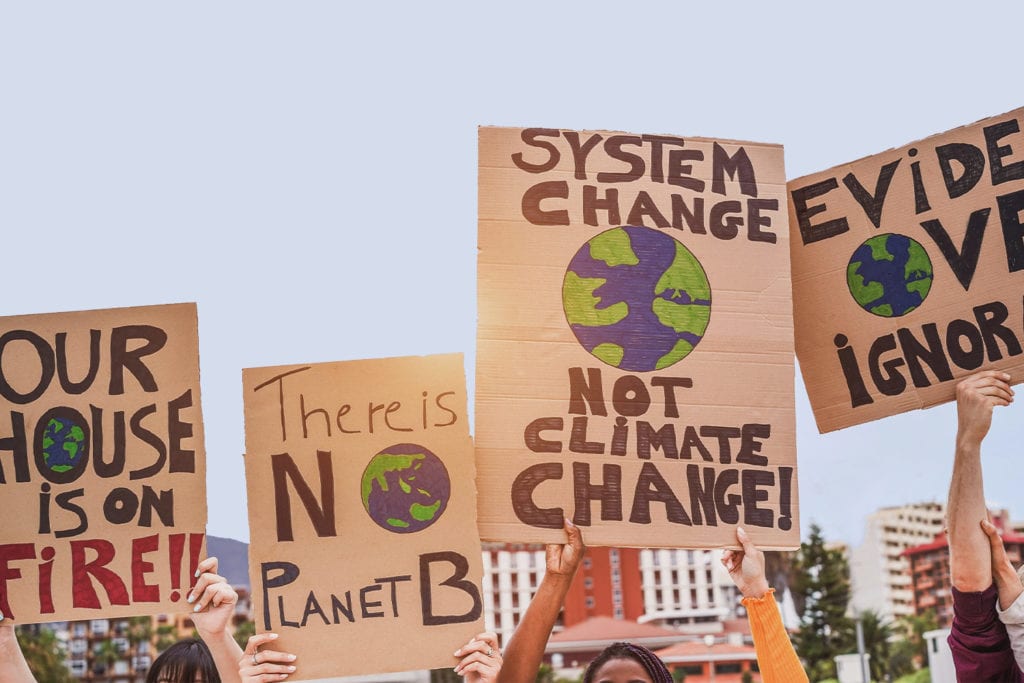If there is no Planet B, then where will we go?
Retreating coast lines. Overheating cities. Increasingly disruptive events, which given their growing frequency, we may now hesitate to call “extreme”.
Society’s Plan A – mitigation – isn’t working. At least, we haven’t made sufficient progress and the requirement for urgent action to cut greenhouse gas emissions and reverse the loss of natural capital is clear. Yet even with the most ambitious carbon reduction scenarios, our climate will continue to change, in turn necessitating Plan B – adaptation and resilience building. Such action can increase the preparedness of communities to manage the shocks and stresses anticipated within forecast changes in the future climate.

Mitigation, adaptation, resilience. Within the context of the built environment and a changing climate, these are terms that society at large is increasingly comfortable with. Yet we are seeing evidence that for many communities globally, efforts to mitigate, adapt and build resilience will not suffice. In these cases, we may turn to a strategy society is less comfortable with, and less well versed in – retreat.
The scale of retreat will vary. From the resettlement of coastal communities (as already evidenced in the US for example) to the trans-boundary movement of tens – potentially hundreds – of millions of people who are expected to be displaced by the impacts of climate change before the end of the century. Similarly, time frames will vary. While retreat is an immediate concern for some, others consider it an answer but not in this decade. Timings will be driven by multiple factors, not least a tipping point between cost to adapt and cost to retreat. Currently, long term planning is often in conflict with short term interests.
The Committee on Climate Change (CCC) estimates that the cost of flooding and erosion is over £260 million per year.
Committee on Climate Change. (2018). “Managing the coast in a changing climate”.
The study further outlines that implementing proposed Shoreline Management Plans would cost £18 – 30 billion. Tidal flooding is only one of a multitude of risks we face in the context of climate change, thus the true cost of delivering adaptation is significantly more.
Identification of communities that are currently unsustainable and require more strategic adaptation, such as re-locations, is identified as a key recommendation of the CCC’s report. While all are vulnerable, some communities may be more mobile and could perhaps become our pathfinders.
So, in retreating how do we move toward something better? Could land swaps enable the trade of high risk for low risk land , building community resilience and allowing “retreated” land to be restored to its natural state? Is enhancing ecosystem services, contributing to climate action efforts and potentially creating new cultural or recreational opportunities an option? Or how about the role of funding inspired by green finance principles that seek to support a wider set of adaptation options than solely hard infrastructure defences or community development corporations?
Retreat is a complex challenge of equity, identity, empathy, infrastructure, and finance. No wonder, then, that Science Magazine has claimed:
Retreat has been seen largely as a last resort, a failure to adapt, or a one-time emergency action; thus, little research has focused on retreat, leaving practitioners with little guidance.
A.R. Siders, Mijuki Hino, Katherine J. Mach. (2019). “The case for strategic and managed climate retreat”. Science, 365 (6455).
That there is a general disregard at policy level for retreat’s strategic role within responses to climate change and broader societal objectives.
It will require meaningful multi-stakeholder engagement, and an approach to planning that is able to deal with the scale of complexity and deep uncertainty posed by the challenge ahead. We, at Buro Happold, thrive on challenges like this and can bring insights from our experience of forming Los Angeles’ Countywide Sustainability Plan as well as our approach to building city resilience through adaptive pathways planning. Above all, these actions will require collaboration. We seek your views, the opportunity to exchange insights and explore new ones together.
The concept of retreat may be politically divisive and emotionally charged. Yet, as we have learnt from multiple points throughout history, it will be less costly and less complex to act proactively rather than reactively.
Plus, if there is no Planet B, where else will we go?
As part of Buro Happold’s Urban C:Lab programme Fergus Anderson is exploring how retreat, in the context of climate change, may be realised as a managed and strategic adaptation option that is not just seen as last resort to avoid risk but as an opportunity for moving toward something better. Based in London but working internationally, he welcomes the opportunity for global perspectives.











